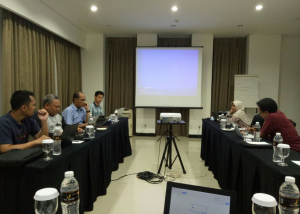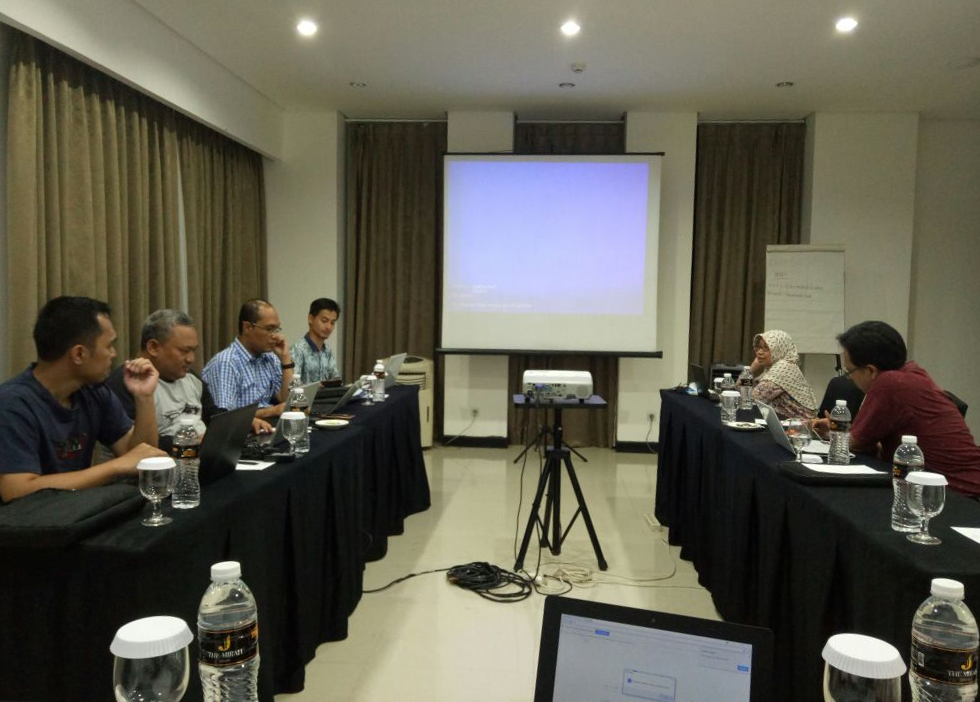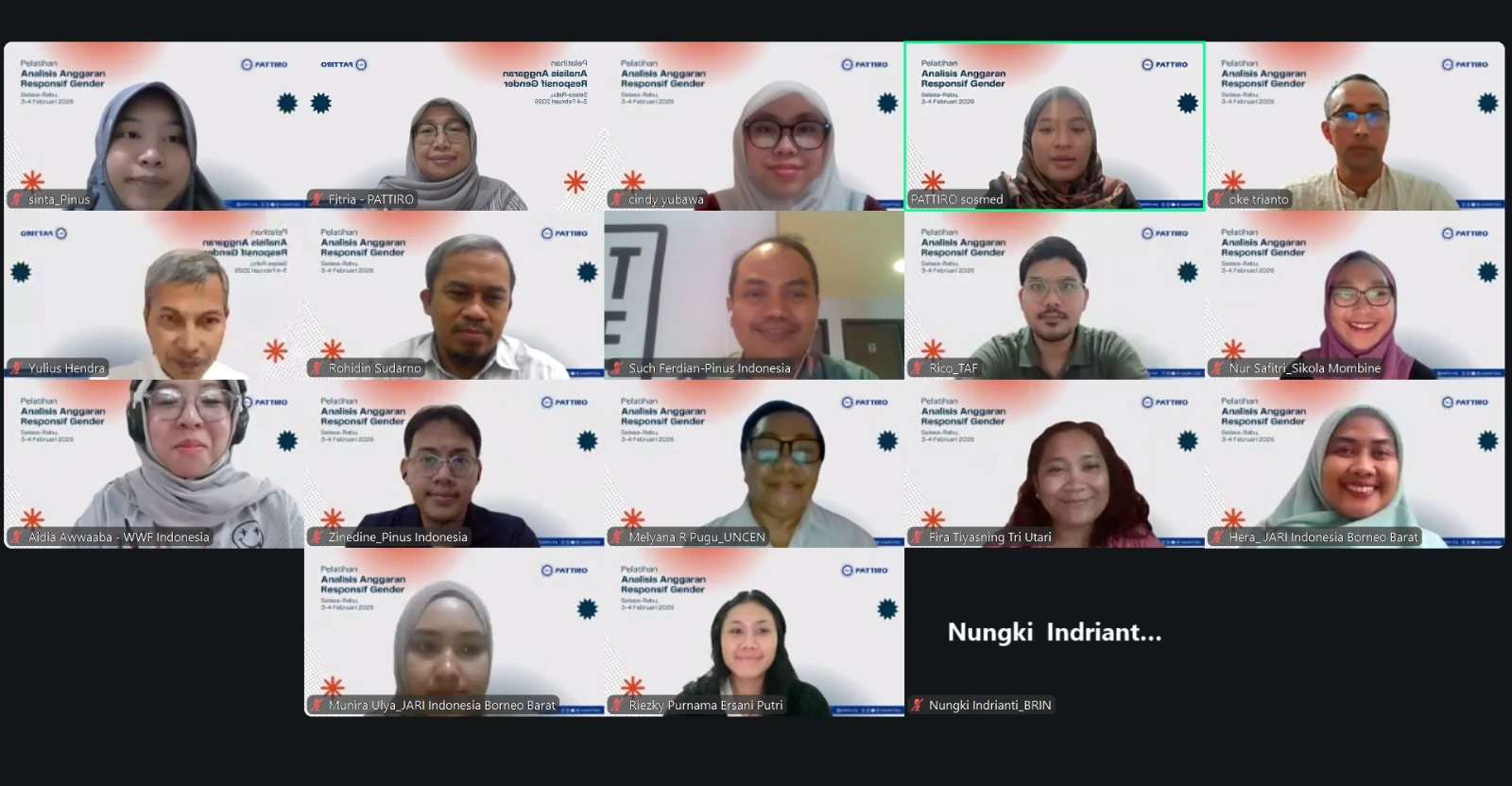 The establishment of the functional position of public service complaints managers is felt to be urgent. This is because in general the management of public service complaints on government institutions, both at the central and regional levels, is still not conducted professionally. So far, activities related to complaints management are done only as an additional task, so that they are not optimal. The establishment of a functional position is expected to encourage complaints management officers to work full time, and be assured about their career path. Such was the opinion raised in the FGD held by PATTIRO on Tuesday, 6 February 2018 in Jakarta.
The establishment of the functional position of public service complaints managers is felt to be urgent. This is because in general the management of public service complaints on government institutions, both at the central and regional levels, is still not conducted professionally. So far, activities related to complaints management are done only as an additional task, so that they are not optimal. The establishment of a functional position is expected to encourage complaints management officers to work full time, and be assured about their career path. Such was the opinion raised in the FGD held by PATTIRO on Tuesday, 6 February 2018 in Jakarta.
RI Ombudsman Commissioner Dadan S. Suharmawijaya stated that many parties think that the job of complaints management is only to receive complaints. This caused many parties to disagree with the establishment of the functional position of complaints managers, because it is considered to be simple work. “Whereas the complaints management officers can also do more advanced jobs, up to settling disputes,” said Dadan. A similar statement was also conveyed by M. Imanuddin, Deputy for Policy Innovation of KemenPAN-RB, namely that complaints managers not only receive complaints, but also could analyze problems, provide solutions and recommendations on the complaints.
“The complexity of the public service complaints management job can open the opportunity for the establishment of functional positions,” said Bejo Untung, PATTIRO Program Manager.
The Head of Facilitation of Complaints and Information Services of the Ministry of Home Affairs Handayani Ningrum remarked that currently complaints managers are being ‘exiled’, whereas according to her, complaints managers should be able to receive and process complaints or aspirations properly. “The person holding the position of complaints manager must be smart, quick thinking, and competent. The complaints manager should be able to become the agency’s mouthpiece, so they must have the necessary personal qualifications,” she said. Handayani further stated that she also strongly agrees with the formation of the functional position of the complaints manager.
The representative from Semarang City Office of Communication and Information Istiqomah said that complaints management in Semarang City was currently handled by a unit called the Center for Complaints Management (P3M). In 2017 there were about 6,000 complaints handled. She agreed about the necessity of a functional position for the management of complaints. “In our experience, every year, the position of administrator managing complaints is always changing. The administrator will be more focused if the position is set as functional position,” added Istiqomah.
University of Indonesia public administration expert Dr. Lina M. Jannah reminded, when proposing the functional position, it should not refer to just the activity, but also the ability of the position to resolve issues. “For the record, a complaint cannot be resolved alone, but must include a team. The functional position should be able to handle all twelve types of services. We also need to find out about possible overlapping of responsibilities with others,” she said.
The establishment of a complaints management unit at a service provider institution is an obligation as mandated by Law on Public Services Number 25 of 2009. The existence of the complaint management unit is inseparable from the public service. Through the means of complaints, the government knows what is desired by the community. “Complaints should dominate in the planning process. The content of the complaint is a good material for development planning,” said Imanuddin.
Field Findings of the Conditions of Complaints Management
On the same occasion, PATTIRO research results related to the condition of the management of complaints in several ministries and institutions were also presented. This research also explored data about experience of functional position formation done by the Directorate General of Fiscal Balance of the Ministry of Finance and Institution of State Administration.
PATTIRO researcher Wawanudin delivered some of his findings. First, most ministries and agencies already have special units for complaint management. In the Ministry of Health, for example, there is a complaints management unit located in the sub-section of public complaints. The number of complaints officers is generally sufficient with a division of tasks to handle call center, public services, and complaint application units. The complaints officer is recruited from an outsourcer called an agent. The contracted agent has experience in complaints management and is under the supervision of ASN. The recruitment of agents through third parties is repeated every year. The complaints management application in ministries and institutions are running independently, and most of them are not yet integrated with LAPOR! The trend or number of complaints coming into the ministry is about 90-100 complaints per day through various channels. Any incoming complaints are not directly answered because of cross-checking to the field. In some cases, complainants receive answers to their complaints after a one-month period.
Second, most of the informants mentioned that functional positions are necessary because the task of the complaints manager is not only to receive complaints, but also to analyze the complaint to become materials for policy. Through functional positions, there will be professionals who will strengthen the complaints management system. The establishment of functional positions is expected to have an impact on the level of satisfaction of public services, and will not have a significant impact on the increase in government budget.
Third, complaints management activities are encouraged to educate the public (creating demand). This effort is expected to increase public participation in delivering complaints. (RN)





